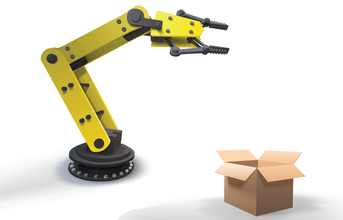
Agility and flexibility
Manufacturing companies need to have shop floor agility and flexibility both in terms of products and processes. This involves implementing changes and improvements quickly, efficiently and cost-effectively. How is industrial
automation helping your organization on this front? How does it impact quality in this context?
Vachhani of Varroc believes that to grow sustainably and stay competitive manufacturing companies need to have shop-floor agility and flexibility. "Manufacturers face challenges in the initial stages in implementing changes and adopting latest technologies due to process maturity and IT savviness but usage of latest automation solutions helps manufacturers/ OEMS to overcome these challenges." Varroc has put impetus on R&D to develop product and process technologies over the past few years (in air filtration systems, electronic security systems, deep hole drilling for sodium filled and hollow engine valves, gear forming, digital electronic clusters to name a few). "Our exterior lighting systems business has been demonstrating LED headlamps, matrix LED lamps, adaptive high beams and advanced signal lighting solutions to customers in an effort to bring these niche technologies to the volume segments. Besides we are also using IT to connect and make our business processes leaner and more agile," Vachhani shares. To bring in agility and flexibility, Godrej Appliances has developed a dedicated team which focuses on the advancements in industrial automation and builds low cost automations to solve and improve day to day operational issues. This may include quick change-overs, deskilling operations, consistency in output and quality, enhancing safety and so on. A separate team tracks the changes happening in the manufacturing processes globally which are relevant to the industry. These processes are adopted post validating the value-add it will create for the business and end consumers without impacting environment or in some cases may even help the environment. "We are also working on a pilot project to implement industry 4.0 on our shopfloor. This, if successful, will be taken across our entire company and will be integrated with our ERP system," shares Shariyarr of Godrej.
Gandhi of Omron points out that the forte and overall capabilities of the automation partner plays a very important role here. "The partner should have the entire spectrum of integrated automation solutions and the capabilities and right skills to keep it in sync with the ever dynamic manufacturing environment. It would be very helpful in not only looking after the flexibility requirements, per se, but also would help the solutions provider to live up to the expectations & demands of advanced and complex manufacturing environment such as digital factories, IoT, etc."
(Continued on next page)


























